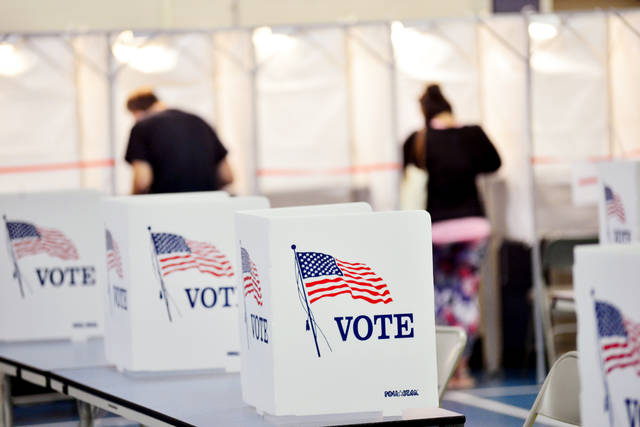https://development.triblive.com/opinion/lori-falce-polls-elections-and-fantasy-football/
Lori Falce: Polls, elections and fantasy football

Polls seem like the worst measure of politics.
Randomly questioning people to see how they feel about issues and how they feel about candidates, how they would vote and if they are likely to do so. They are a hodgepodge of numbers that puff themselves up and try hard to seem very important.
And the way they wiggle into the process doesn’t just count heads. It changes minds.
In physics, it is called the observer effect. It’s the idea that the very act of paying attention to something makes a difference in how it turns out. In essence? A watched pot never boils. Or boils faster. Or hotter. Whatever the result, it’s not necessarily what it would be if you just put the kettle on the stove and walked away.
Gallup started doing public opinion polling in the 1930s. Politics has not really been the same since.
Today, running for office is not just about making speeches about what you want to do.
For every baby kissed and hand shaken, a candidate has to face focus groups to see how the kiss will be seen and the shake will be felt. For every policy position formulated, a phone bank has to talk to people about whether they would like to get beer with this candidate or talk cookie recipes with that one.
The numbers go up and down, back and forth, perhaps based less on what a candidate is saying than what the pollster is asking.
The poll numbers become the story, with every new set of figures being treated like halftime scores for the big game. Tempting as it is to put this on the media, it’s bigger than that. The campaigns and the parties are complicit as they push the numbers they like and decry the ones they don’t.
And as we treat elections more and more like fantasy football, it becomes more sport and less government.
Every pundit who cites the poll numbers on television has a tendency to close with the same cliche.
“Of course, the only poll that really matters is Election Day! Ha ha ha!”
It’s more than a punch line. It’s the truth.
There is a reason that news organizations try — or should try — to be careful about calling an election before all of the ballots are cast in every state. It’s because thinking that your vote doesn’t matter compared with the ones already recorded makes you less likely to go out on a November night and do your civic duty.
That announcement can change the way people vote. And it shouldn’t. Neither should the polls that lead up to the big day.
The 2016 presidential election proved that polls can be deceiving. If we rely on them, we are asking to be deceived.
Copyright ©2026— Trib Total Media, LLC (TribLIVE.com)
